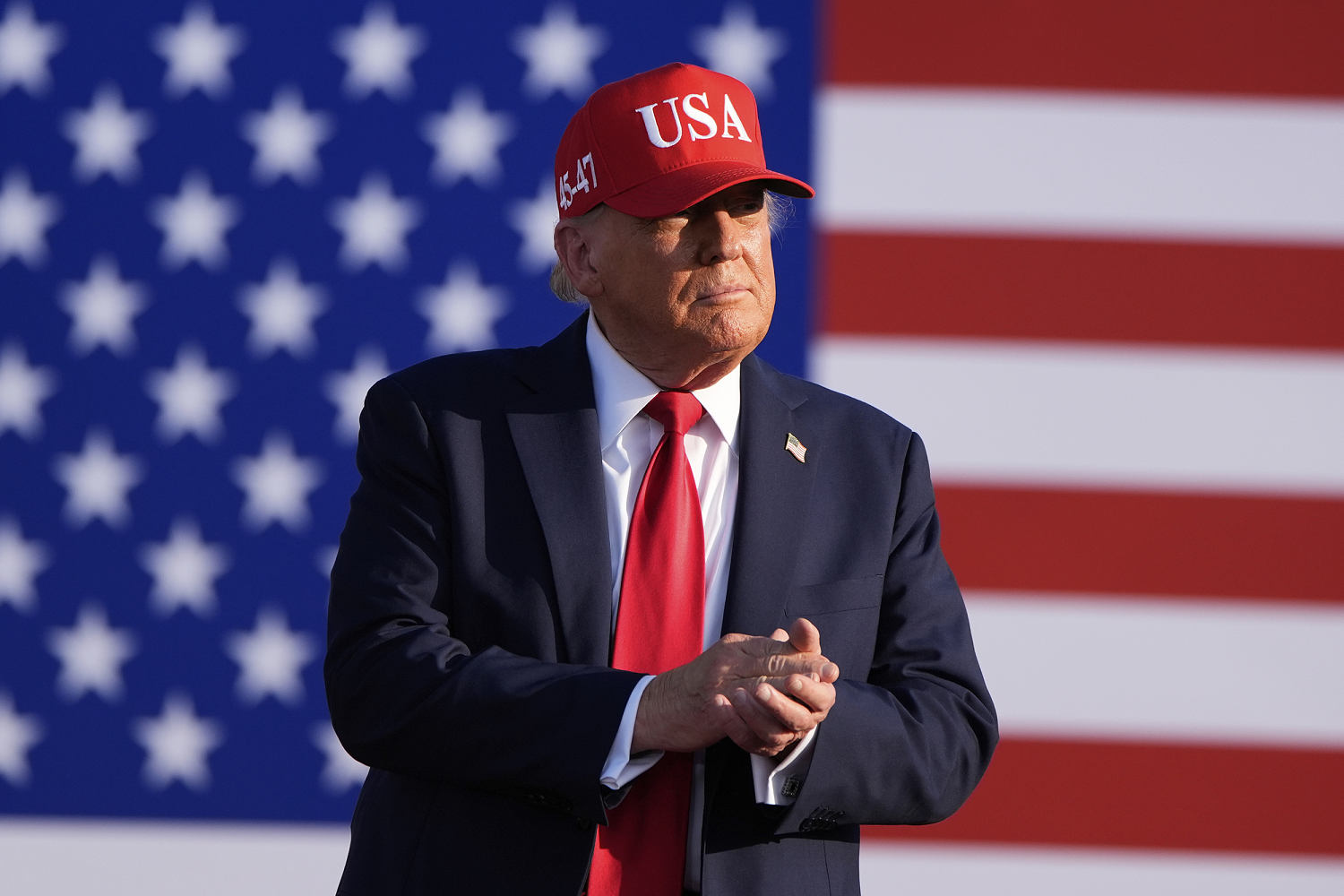
Another obstacle to passage was the world’s richest man: Elon Musk. Once head of Trump’s effort to shrink the government workforce, Musk left the White House and swiftly denounced the bill. On Monday, he said he would work to oust lawmakers who campaigned on reducing the debt and yet voted for the bill.
He wrote on his social media site, X, that “they will lose their primary next year if it is the last thing I do on this Earth.”
The final vote suggested that GOP lawmakers may be more fearful of Trump’s ire than Musk’s money — or the new party Musk vowed to start one day after the “insane” bill passed.
Whether Trump and his party capitalize on the legislative achievement may hinge on what the “One Big Beautiful Bill Act” does in the real world. It wouldn’t have passed but for Trump. The bill’s title is an ode to Trump’s marketing instincts; he now owns it.
Will it unleash the economic growth that Trump predicts? Or will the steep cuts in the social safety net alienate some of the same blue-collar voters that Trump wrested from the Democratic coalition? The midterm elections next year will test whether Trump’s gambit paid off.
Trump’s demands throughout the saga did not always match reality. In a meeting Wednesday with moderate Republican lawmakers in the White House, Trump told them, “Don’t touch Medicaid.” Someone in the room responded that the bill does in fact touch Medicaid, a GOP lawmaker told NBC News. To pay for the tax breaks, the bill makes steep cuts to Medicaid, food aid programs and clean energy funding.
Whit Ayres, a GOP pollster, said that Republicans “are going to have to build a powerful case for it.”
“They are going to have to figure out a way to explain, if indeed the Medicaid cuts throw people off of Medicaid, why this bill did that when Donald Trump said he wasn’t going to touch Medicaid,” he continued.
A Republican senator, speaking on condition of anonymity before the bill passed, said: “The Democrats are beating us on the messaging. It’s just that simple. We don’t have anyone out messaging [on the bill] because we’re too busy fighting among ourselves. At some point, you’ve got to go sell this.”
Trump pulled off his most consequential legislative victory of either term through a mix of intimidation and wheedling. He has proven again and again that he can gin up a successful primary challenge to Republican lawmakers who defy his wishes. The latest example is Sen. Thom Tillis, R-N.C.
One day after Tillis angered Trump for opposing the bill, the senator announced he won’t run for reelection.
But Trump, in tandem with Vice President JD Vance, also presided over a more traditional strategy for coaxing members to vote yes. Trump threw himself into the effort, aides and lawmakers said.
Aides cleared Trump’s schedule of public events Wednesday so he could spend more time wooing lawmakers. At 1 a.m. on Thursday, he was on a phone call with a group of congressional holdouts, trying to persuade them to come around.
One person familiar with the phone call said that Trump and other White House officials pledged to aggressively implement key provisions in the bill including the phase-out of clean energy tax credits. The discussion also involved future actions to fulfill conservative priorities. Rep. Thomas Massie, R-Ky., remarked that it would be nice if Trump stopped attacking him. (Massie and Rep. Brian Fitzpatrick, R-Pa., were the only two Republicans to vote against the bill on Thursday).
Vance was pressed into service last weekend, as worries grew about the bill’s prospects in the Senate.
The vice president, who had spent most of the week at his Cincinnati home with family, flew back from Ohio on Saturday to huddle with Republican senators.
After arriving at the Capitol, Vance met with key Republicans like Sen. Mike Crapo of Idaho, who chairs the Finance Committee. He also focused on potential GOP holdouts, including Sens. Ron Johnson of Wisconsin, Mike Lee of Utah, Cynthia Lummis of Wyoming and Rick Scott of Florida, according to two people familiar with his involvement.
Vance returned to the Capitol early Tuesday morning ahead of the final vote, with Republican senators creating something of a revolving door between the Senate floor and the vice president’s ceremonial office nearby.
Vance also remained in talks with House members through Thursday’s vote.
“GOP Congressman just texted me,” the vice president posted Thursday morning on X as House Democratic Leader Hakeem Jeffries of New York was speaking against the bill. “‘I was undecided on the bill but then I watched Hakeem Jeffries performance and now I’m a firm yes.’”
In passing a bill that encapsulates much of his domestic agenda, Trump succeeded where some other Republican presidents failed. George W. Bush won reelection in 2004 and, armed with what he called newfound “political capital,” tried mightily to get Congress to overhaul the Social Security system. The effort collapsed.
Trump will have at least a brief period to relish the achievement before the bill takes effect and voters see for themselves if there’s a gap between what he promised and what he delivers. He’ll do it in style from the White House, watching a fireworks display in the evening and a flyover of the military’s most sophisticated aircraft.
“The golden age is here!!!” senior White House adviser Stephen Miller posted on X, referring back to Trump’s inaugural speech.